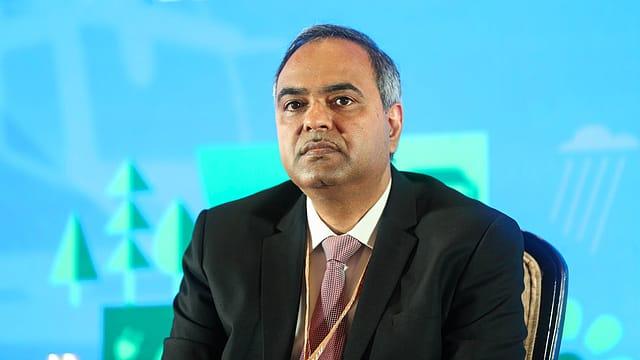'Negative commentary has come down': Tata Motors' Shailesh Chandra sees brighter days ahead for EVs
ADVERTISEMENT

After more than doubling in the calendar year 2023, electric car sales hit a speed bump in 2024, with growth slowing to 18% year-on-year. However, as more carmakers join the EV race, customer confidence is expected to rise significantly, according to Tata Motors' Shailesh Chandra.
“In 2024, there was a global narrative of doom and gloom surrounding EVs, which confused customers about whether it was the right time to buy EVs or if they should buy them at all. In India, this confusion was compounded by the decline in the fleet segment, which accounted for 15% of EV sales before subsidy withdrawal," said Chandra, managing director of Tata Motors Passenger Vehicles and Tata Passenger Electric Mobility. “A key factor now is that negative commentary has significantly decreased. With so many players launching EVs, it instils confidence in customers that this is indeed the future.”
Chandra attributed much of the optimism to new EV launches. “There’s no reason why EV sales shouldn’t expand now,” he said.
The head of India’s largest electric car manufacturer acknowledged that while charging infrastructure is still developing, a structural transformation is essential. “Range anxiety is largely being addressed in models priced above ₹18 lakh, offering over 500 km of range. However, the issue persists for lower-segment cars, making charging infrastructure crucial for the mainstream adoption of EVs,” he said.
With five electric vehicles in its portfolio, Tata Motors offers the widest range of EVs across various segments. However, despite this advantage, the company recorded modest year-on-year growth of 2.3% in EV sales in 2024. Its market share fell from 75% in December 2023 to 46% in December 2024. In contrast, JSW MG Motor India’s EV sales surged by 125% during the same period, capturing 42% market share in December, driven by the launch of the MG Windsor, which includes a battery rental plan.
Electric car sales grew by 18% year-on-year to 1.06 lakh units in 2024, according to industry sources, while hybrid car sales rose by 24% to 1.02 lakh units. Notably, EVs are taxed at just 5%, compared to the 43% Goods and Services Tax (GST) levied on hybrid cars.
“There are customers who would not come forward to buy an EV because they are attached to a certain brand. Some of them are hesitant because of concerns about charging infrastructure, or doubts about resale value,” Chandra explained. “Many EV buyers are still purchasing them as a second or third car. Whether the new launches can unleash the full potential of EVs and address these concerns remains to be seen.”
Tata Motors is set to launch the Harrier EV in the first half of 2025, followed by the Sierra in the second half.
On dedicated EV showrooms, Chandra revealed plans to open Tata.ev outlets in 50 cities. “We’ve identified these locations and set volume thresholds that need to be met for the channel to be profitable before launching more showrooms. Kerala, in particular, has been very successful, with four outlets already operational and high penetration levels,” he said.
Chandra believes the EV industry will segment into two broad categories: city EVs with a range of under 300 km and versatile EVs with ranges exceeding 300 km. “For outdoor enthusiasts, EVs with a 500 km range are more appealing. Most of the current launches focus on versatile EVs, leading to heightened competition in the ₹18 lakh-plus segment. However, there is minimal competition in the lower-priced segment, where mainstream buyers are concentrated. For the benefit of all players, the market must expand. If it doesn’t, it could spell trouble for everyone,” he cautioned.
The MD of India’s largest electric carmaker also noted growing interest in EVs in smaller towns following the introduction of the PM Surya Ghar Yojana, which offers subsidies for rooftop solar panels. “This scheme has significant growth potential, particularly in small towns and villages where rooftop solar panels are gaining traction,” he said.